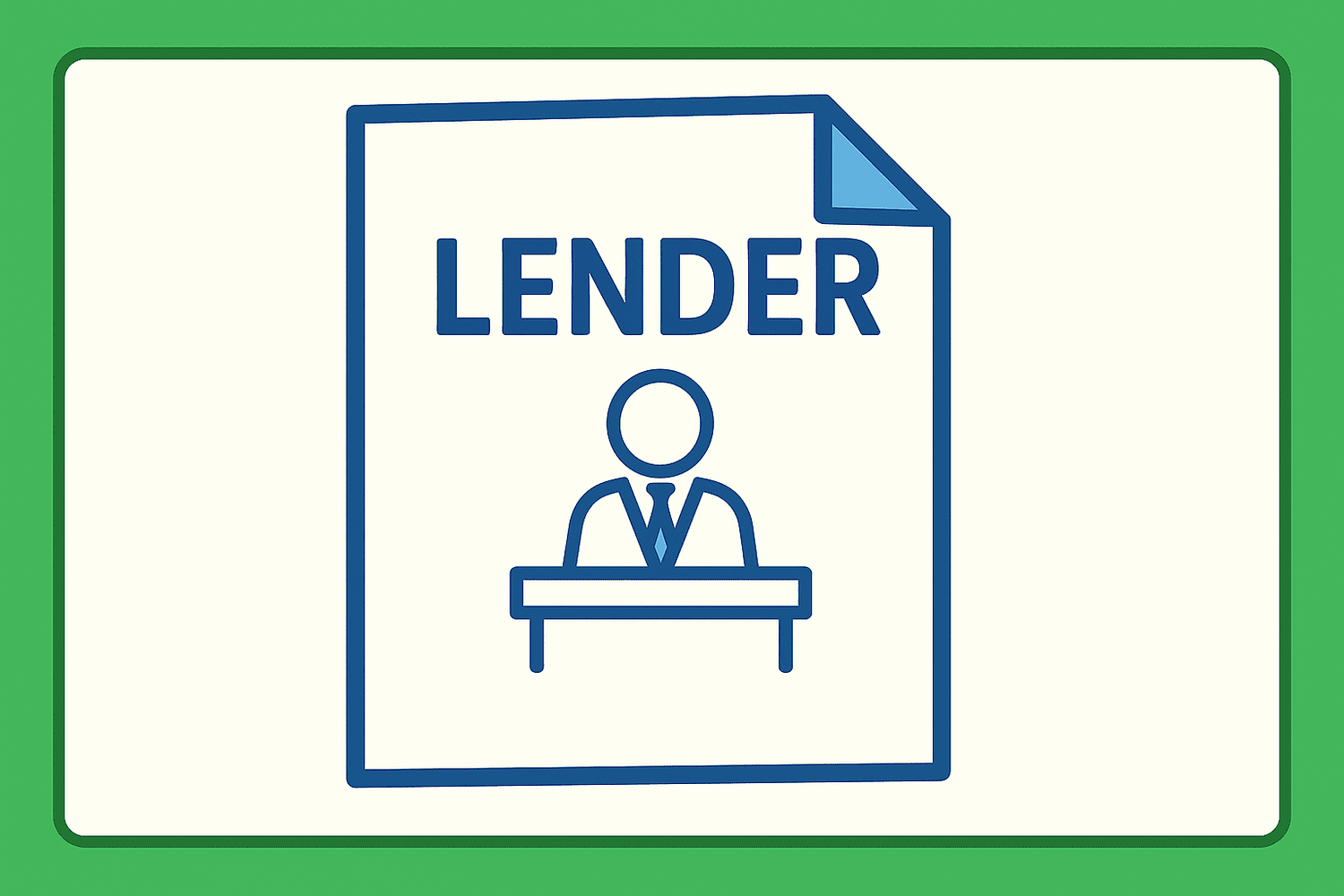
Lender Explained
If you’ve ever borrowed money, whether through a credit card, auto loan, or personal loan, you’ve dealt with a lender. But not all lenders are created equal. Understanding who your lender is, what they offer, and how they operate can help you make smarter borrowing decisions.
In this guide, we’ll break down what a lender does, the different types of lenders available, and how to choose the right one for your needs.
Key Takeaways
- A lender provides funds with the expectation of repayment, typically with interest.
- Lenders can be banks, credit unions, online platforms, or individuals.
- Direct lenders like Simple Fast Loans offer more transparency and faster service.
- When choosing a lender, prioritize clarity, reputation, and fair terms.
- Always read the fine print—and don’t borrow from anyone you don’t fully understand.
What Is a Lender?
A lender is a financial entity—such as a bank, credit union, online lender, or individual—that provides funds to a borrower with the expectation of repayment, usually with interest.
Lenders earn money by charging fees and interest on the money they lend. The terms of this lending agreement are typically defined in a loan contract or promissory note.
What Do Lenders Do?
Lenders evaluate a borrower’s creditworthiness and determine:
- How much money to lend
- At what interest rate
- Over what repayment schedule
- With what collateral or conditions (if any)
They also manage ongoing loan servicing, such as collecting payments, issuing statements, and reporting to credit bureaus.
Types of Lenders
There are several categories of lenders, each with its pros, cons, and target borrowers:
|
Type of Lender |
Description |
|
Traditional Banks |
Large institutions offering personal, auto, mortgage, and business loans |
|
Credit Unions |
Nonprofit cooperatives offering low rates but requiring membership |
|
Online Lenders |
Digital platforms offering fast approvals and flexible loan options |
|
Peer-to-Peer (P2P) |
Individuals lending to others via online platforms |
|
Private Lenders |
Companies or individuals offering niche or short-term loans |
|
Government Lenders |
Federal or state programs (e.g., student loans, SBA loans) |
Direct Lender vs. Loan Broker
When applying for a loan, you may work with either a direct lender or a loan broker:
|
Direct Lender |
Loan Broker |
|
Lends their own money |
Connects you with third-party lenders |
|
Sets their own terms and rates |
May charge extra fees or commissions |
|
Works directly with the borrower |
Acts as a middleman |
|
Faster and more transparent process |
Can expand options, but with added complexity |
At Simple Fast Loans, we are a direct lender, which means you work directly with us throughout your loan experience.
How Lenders Evaluate Borrowers
Before approving a loan, lenders typically assess several factors, including:
- Credit score and credit history
- Income and employment status
- Debt-to-income (DTI) ratio
- Loan purpose
- Collateral (for secured loans)
Each lender uses their own internal guidelines, but these basics play a role in most lending decisions.
What Makes a Good Lender?
A reputable lender does more than just provide money—they also offer:
- Transparency about rates, fees, and repayment terms
- Fair lending practices
- Fast and clear communication
- Flexible loan options
- Secure data handling
- No hidden charges
Avoid any lender who uses aggressive tactics, hides fees, or offers “guaranteed approval” without reviewing your credit.
Common Lender Red Flags
|
Red Flag |
Why It Matters |
|
No credit check required |
May indicate predatory or payday-style lending |
|
Upfront fees before the loan is issued |
Legitimate lenders do not charge application fees |
|
Vague or confusing loan terms |
Transparency is key to trust |
|
Pressure to borrow more than needed |
Signals profit-first motives |
|
No online presence or customer reviews |
It can be hard to verify legitimacy |
Lender vs. Creditor: What’s the Difference?
A lender usually provides a loan structured with fixed terms and repayment plans. A creditor, on the other hand, is a broader term that includes anyone who extends credit (e.g., credit card companies, collection agencies, medical providers).
All lenders are creditors, but not all creditors are lenders.
Simple Fast Loans: A Lender You Can Trust
As a direct lender, Simple Fast Loans is committed to offering clear, fast, and responsible borrowing solutions. Whether you need a short-term installment loan or help covering an emergency expense, we provide:
- Fast online application and approval
- No hidden fees
- Transparent repayment terms
- Friendly customer support
We’re not just a lender—we’re a financial partner who values your trust.